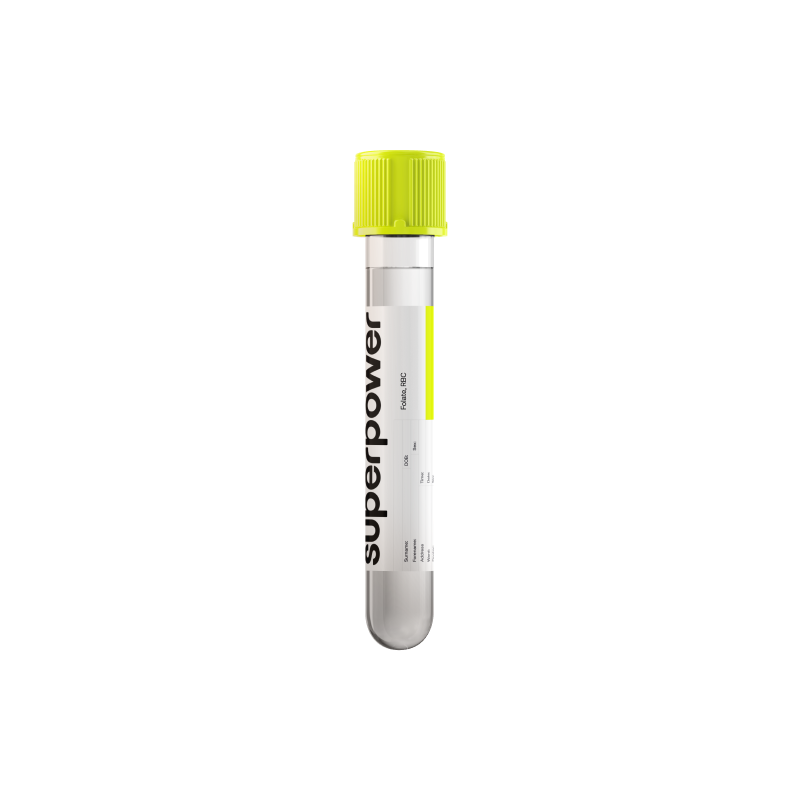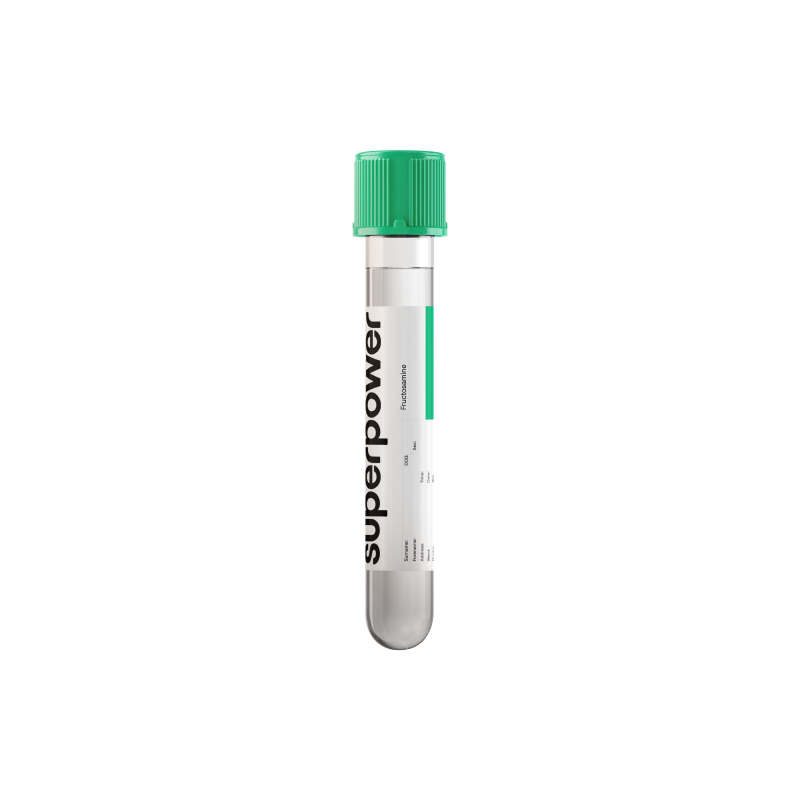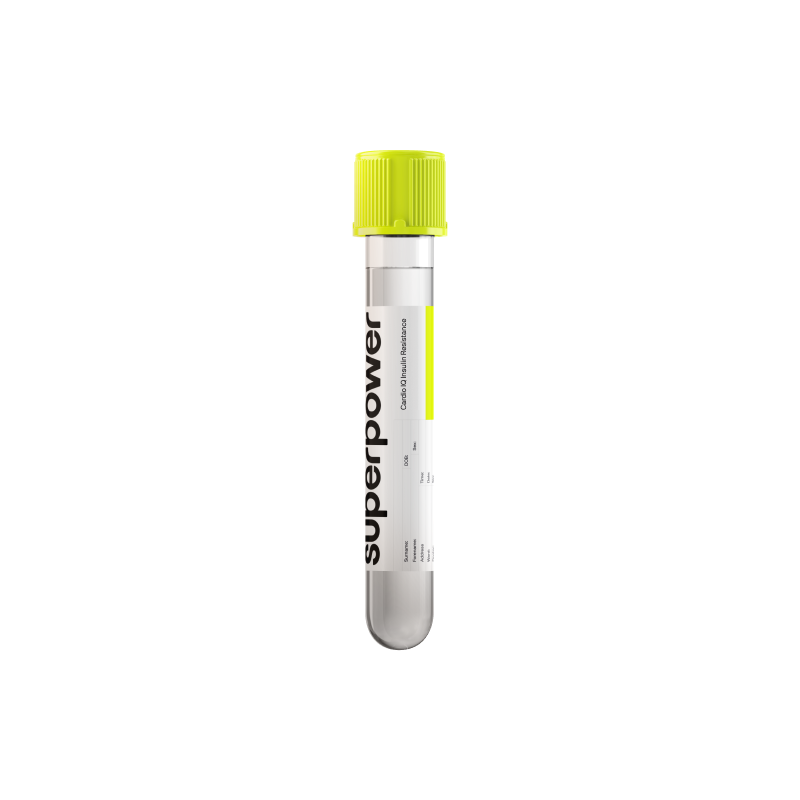Do I need a Sex Hormone Binding Globulin (SHBG) test?
Struggling with low energy, reduced libido, or unexplained weight changes? Could your hormone balance be off, and might an SHBG test reveal what's really happening?
SHBG is a protein that binds to sex hormones like testosterone and estrogen, controlling how much is available for your body to use. When SHBG levels are too high or too low, you may experience fatigue, mood changes, or sexual health issues.
Testing your SHBG gives you a vital snapshot of your hormone activity, helping pinpoint whether imbalances are driving your symptoms so you can personalize your nutrition, lifestyle, and treatment approach to restore your energy and vitality.
Get tested with Superpower
If you’ve been postponing blood testing for years or feel frustrated by doctor appointments and limited lab panels, you are not alone. Standard healthcare is often reactive, focusing on testing only after symptoms appear or leaving patients in the dark.
Superpower flips that approach. We give you full insight into your body with over 100 biomarkers, personalized action plans, long-term tracking, and answers to your questions, so you can stay ahead of any health issues.
With physician-reviewed results, CLIA-certified labs, and the option for at-home blood draws, Superpower is designed for people who want clarity, convenience, and real accountability - all in one place.
Key benefits of Sex Hormone Binding Globulin (SHBG) testing
- Reveals how much testosterone and estrogen are actually free and active.
- Flags hormonal imbalances that explain fatigue, low libido, or mood changes.
- Guides treatment for PCOS, metabolic syndrome, and insulin resistance.
- Clarifies whether symptoms stem from hormone levels or hormone availability.
- Tracks response to hormone therapy or lifestyle changes over time.
- Protects fertility by identifying conditions that disrupt ovulation or sperm production.
- Best interpreted with total testosterone, free testosterone, and your symptoms.
What is Sex Hormone Binding Globulin (SHBG)?
Sex hormone binding globulin is a transport protein made primarily in the liver. It circulates in your bloodstream with a specific job: to bind and carry sex hormones - mainly testosterone and estrogen - throughout your body.
SHBG controls how much hormone is free to act
When testosterone or estrogen attaches to SHBG, it becomes temporarily inactive. Only the small fraction of hormone that remains unbound, or "free," can enter cells and trigger biological effects. SHBG therefore acts as a regulator, controlling how much active hormone is available at any given time.
It responds to metabolic and hormonal signals
Your liver adjusts SHBG production based on various influences. Estrogen tends to increase SHBG levels, while androgens and insulin tend to lower them. This makes SHBG a useful window into your metabolic and hormonal balance, reflecting how your body manages sex hormone activity in response to diet, body composition, and overall health.
Why is Sex Hormone Binding Globulin (SHBG) important?
SHBG is a transport protein made by the liver that binds to testosterone and estrogen in your bloodstream, controlling how much of these hormones are free and active in your tissues. It acts like a molecular sponge, soaking up excess sex hormones and releasing them when needed, which means SHBG levels directly influence your metabolic health, reproductive function, mood, and energy. Reference ranges typically fall between 10–80 nmol/L, with optimal values varying by sex and metabolic state.
When SHBG runs low, hormones run wild
Low SHBG means more free testosterone and estrogen are circulating, which sounds beneficial but often signals insulin resistance, fatty liver, or metabolic syndrome. Men may experience acne, hair loss, and prostate issues. Women often face irregular periods, polycystic ovary syndrome (PCOS), and increased cardiovascular risk. Both sexes may feel fatigued despite high hormone levels because the body's signaling becomes dysregulated.
High SHBG can starve tissues of active hormones
Elevated SHBG binds up too much testosterone and estrogen, leaving tissues hormone-deprived. Men may notice low libido, erectile dysfunction, and muscle loss. Women can experience lighter periods, low energy, and reduced bone density. High SHBG often accompanies hyperthyroidism, aging, or estrogen therapy.
The metabolic messenger you didn't know you had
SHBG bridges your hormonal and metabolic worlds. It reflects liver function, insulin sensitivity, and thyroid activity while shaping fertility, body composition, and long-term disease risk. Tracking SHBG helps reveal whether your metabolism is supporting or sabotaging your hormonal balance.
What do my Sex Hormone Binding Globulin (SHBG) results mean?
Low SHBG levels
Low values usually reflect insulin resistance, excess body fat, or high androgen exposure. SHBG is made in the liver and binds tightly to testosterone and estradiol, controlling how much of each hormone is free and active. When insulin is chronically elevated or androgens are high, the liver produces less SHBG. This amplifies free hormone activity even when total hormone levels look normal. In women, low SHBG often accompanies polycystic ovary syndrome and metabolic syndrome. In men, it may signal similar metabolic stress or thyroid underactivity.
Optimal SHBG levels
Being in range suggests balanced metabolic and hormonal signaling. SHBG acts as a buffer, preventing wild swings in free sex hormone availability. Optimal values tend to sit in the mid to upper portion of the reference range, reflecting good liver function, insulin sensitivity, and appropriate thyroid hormone activity.
High SHBG levels
High values usually reflect low androgen activity, excess estrogen, hyperthyroidism, or aging. Elevated SHBG binds more testosterone and estradiol, reducing their free fractions and blunting their effects. In men, this can contribute to low energy and reduced libido despite normal total testosterone. In women, high SHBG may accompany estrogen therapy or thyroid overactivity.
Factors that influence SHBG
SHBG rises with age, particularly in men, and increases during pregnancy and with oral estrogen use. It falls with obesity, hypothyroidism, and certain medications including corticosteroids and growth hormone.
Method: FDA-cleared clinical laboratory assay performed in CLIA-certified, CAP-accredited laboratories. Used to aid clinician-directed evaluation and monitoring. Not a stand-alone diagnosis.

.svg)



.png)
.png)
.png)
.png)
.png)








.png)